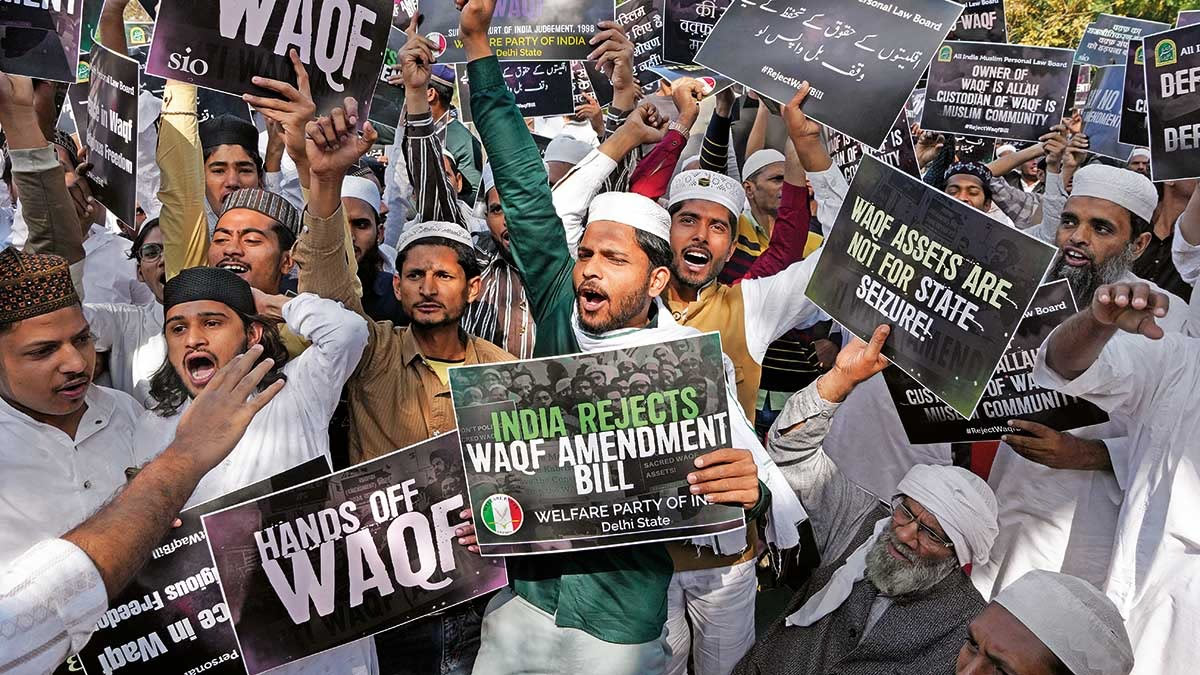In a relentless discussion that spanned over two consecutive days and went on for more than 12 hours each night, both houses of Parliament passed the Waqf Amendment Bill. However, efforts to suspend its implementation might now commence. Various Muslim organizations and the opposition have been consistently protesting. They now face three main options: seeking judicial relief, taking to the streets, and applying political pressure. The question arises, can the bill be halted by challenging it in court, or will street protests force the government to reconsider? Additionally, the fallout from the Bihar elections is stirring questions about whether the displeasure among Muslim leaders in Nitish Kumar's party could breathe new life into the opposition.
Indeed, the judiciary, street protests, and internal political pressure are the three remaining arrows in the quiver as opposition parties and Muslim organizations embark on a quest to halt the Waqf Bill passed by Parliament. This effort is spearheaded by Congress and Asaduddin Owaisi. In Bihar, Mohammad Javed and AIMIM chief Asaduddin Owaisi have petitioned the Supreme Court against the bill, arguing that it opposes constitutional principles and civil rights.
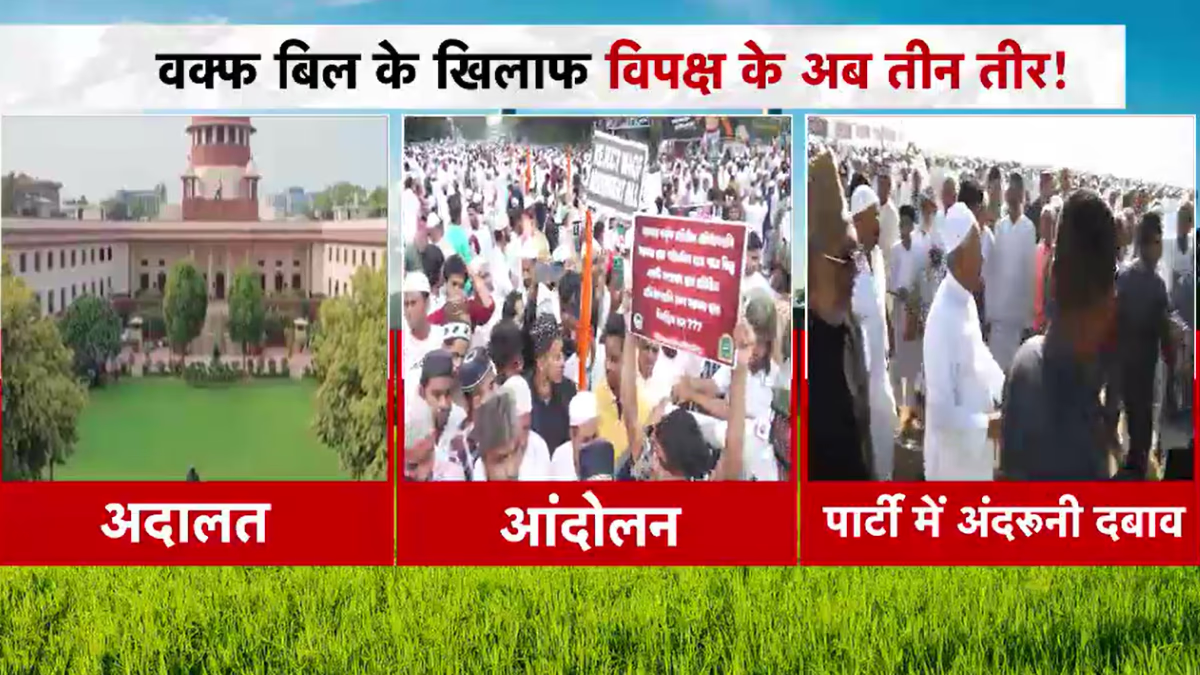
Source: aajtak
What Relief Can the Supreme Court Offer?
Now, the pressing question is - can the opposition halt a bill that, once signed by the President, becomes law through the judiciary? In the past, the Supreme Court saw petitions on issues like the Ayodhya Ram Temple and Article 370 in Jammu and Kashmir, but the opposition faced setbacks each time. Is the court route being pursued to secure Muslim votes, showcasing that a fight was waged? Moreover, demonstrations have also been initiated alongside judicial attempts. Protests in Ludhiana involved effigy burning, and slogans against the Waqf Bill echoed, with hundreds taking to the streets in Kolkata. Sensing the potential for unrest, police in various sensitive areas across Uttar Pradesh remained on high alert, but no major demonstrations were observed there.
Alongside court proceedings and protests, the opposition's third maneuver involves internal political pressure on Nitish Kumar's party. There is a belief within the opposition that the 240-seat BJP couldn’t have passed the bill on its own without the support of parties led by Nitish Kumar and Chandrababu Naidu. Some opposition leaders have even claimed that within 24 hours, some Muslim leaders distanced themselves from the JD(U), potentially pressuring Nitish Kumar. However, JD(U) has clarified its continued support for the BJP and the Waqf Bill.
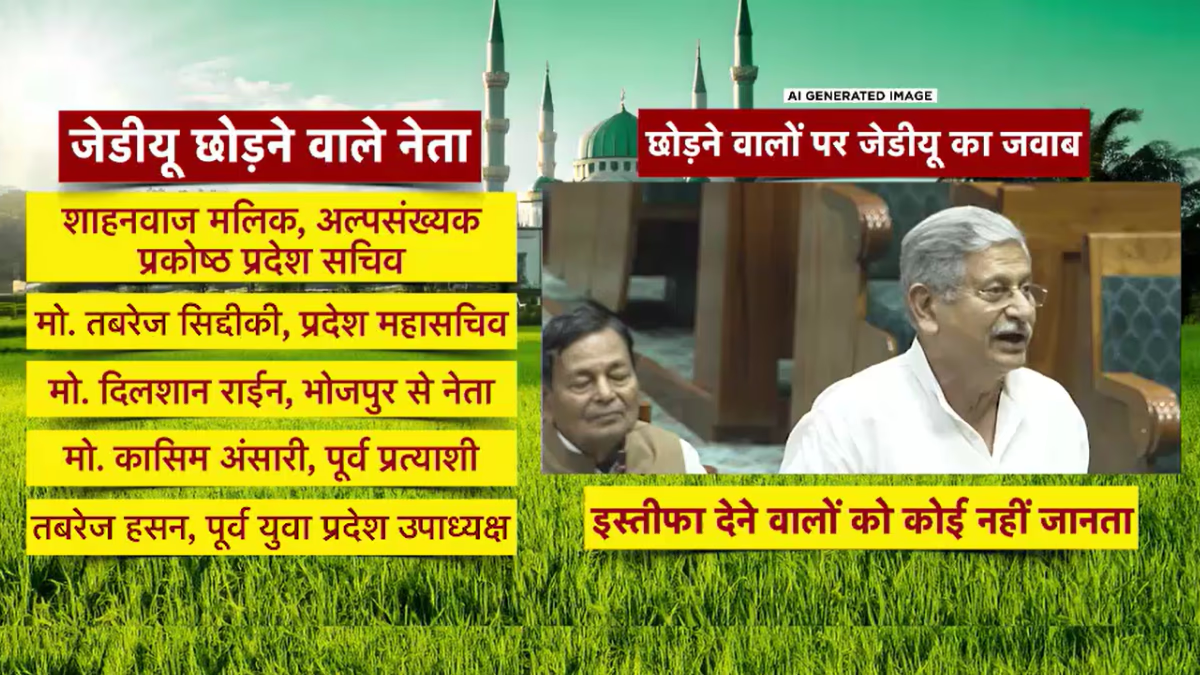
Source: aajtak
Five JD(U) Leaders Leave Party
Several Muslim leaders within JD(U) resigned following the party's support for the bill in Parliament. Among them, some have demanded the bill's withdrawal, alleging betrayal by Nitish Kumar. These leaders assert that Muslim voters will respond to this perceived betrayal, while JD(U) claims that those who left were not well-known figures. They also boast support from Pasmanda Muslims. Meanwhile, it is being questioned whether Nitish, who has managed coalition dynamics for over 20 years, is unaware of any discontent among Muslim voters regarding the Waqf Bill. Party line altered by JD(U)'s minority cell leader Mohammed Shahnawaz Malik, other party officials, and former candidates who resigned, but JD(U) maintains minimal impact from these departures.
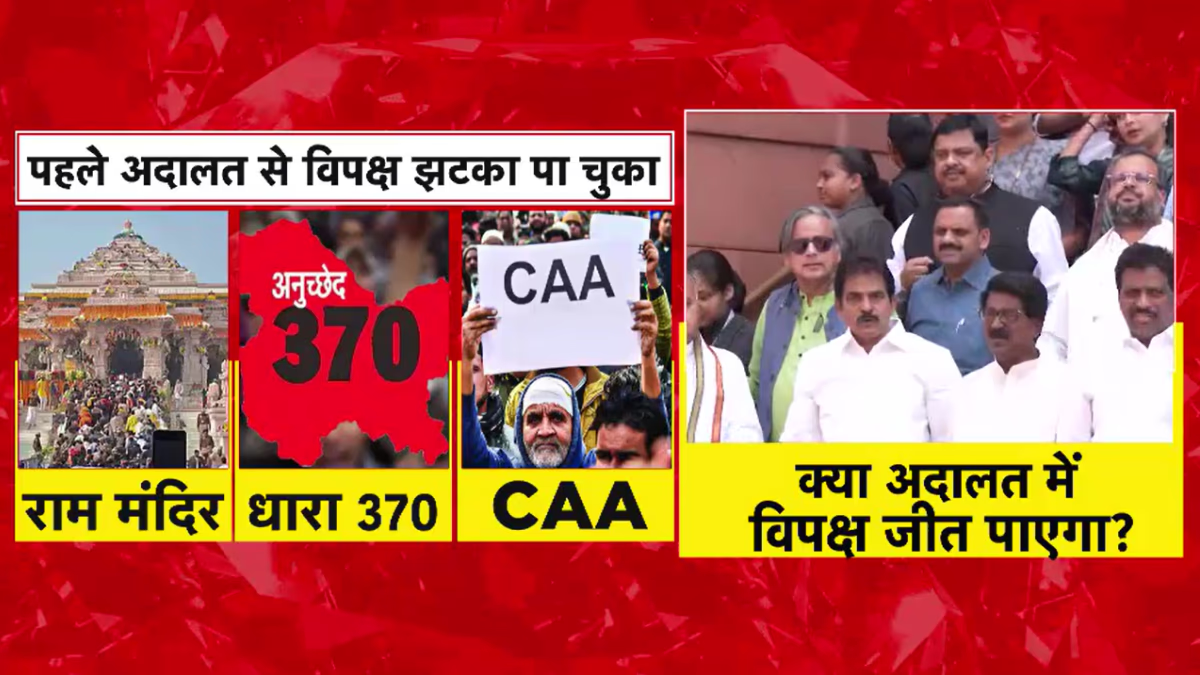
Source: aajtak
Can Muslim Leaders Pressure Nitish Kumar?
This political strategy can further be understood as JD(U)'s Muslim leaders are expected to hold a press conference, demonstrating damage control measures. Meanwhile, the RJD, eyeing a significant chunk of the Muslim vote in Bihar, sees this as an opportunity. Campaign material in Rashtriya Swayamsevak Sangh (RSS) attire mocks Nitish, labeling him as deceitful to Muslims, and even suggesting a health issue may explain his support for the bill. The opposition believes that pressuring or alienating Muslim leaders within JD(U) will either awaken Nitish Kumar's conscience or draw Muslim votes away from the JD(U), unaware of Nitish’s calculated political maneuvers.
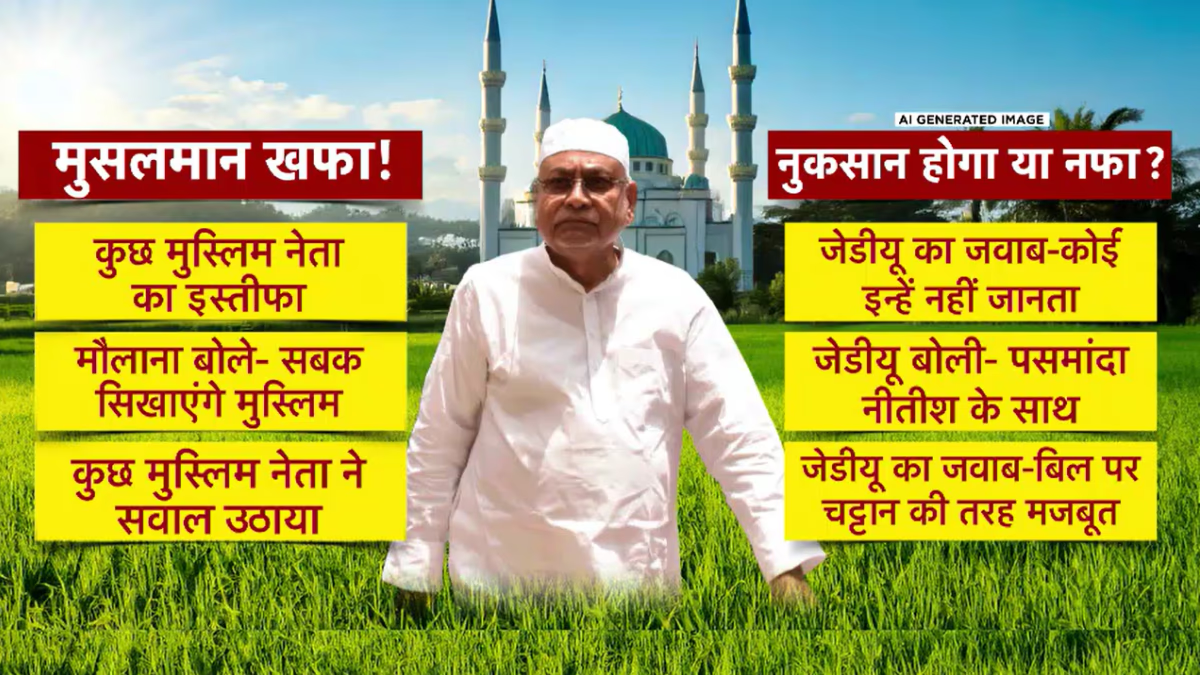
Source: aajtak
Nitish Kumar treads carefully with each political step, calculating risks, including the potential displeasure of Muslim voters. Understanding this, one sees that Muslims form 17.7% of Bihar's population, with Pasmanda Muslims making up 12.9%. Pasmanda Muslims account for 73% of the Muslim population in the state. Nitish is banking on their support. Observing the 2020 assembly election results, where over 20% Muslim vote holds relevance, JD(U) and allies secured 23 of the 47 seats with significant Muslim electorates, potentially tipping the scales in NDA's favor again.
